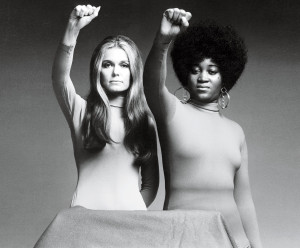*This post of mine was also published on The Huffington Post.*
In the aftermath of the Charleston Shootings, which killed nine churchgoers in South Carolina, there has been so much discussion around whether the incident can be labeled an act of terrorism to whether the Confederate flag should still fly. Much of America remains wrapped up in this debate, even as a brave black woman scaled the South Carolina State Capitol’s flagpole to remove it; despite Black churches being set ablaze across the country.
But as discourse rages around around the state of race in America today, one aspect of the discussion that needs more focus is the role of gender. Women typically make up the majority of mass shooting victims, and despite Roof attempting to position himself as some kind of savior of white women, six out of his nine victims were black women.
“When Roof allegedly said, ‘you rape our women and you’re taking over our country’ before opening fire on a room of Black women and men at Bible study, he was using one of the oldest lines in the White supremacist handbook,” explains Tehama Lopez Bunyasi, Assistant Professor at the School of Conflict Analysis and Resolution at George Mason University. “Although he is seemingly accusing Black men of raping White women, his claim that Black people are taking over the country may not be as gender-specific. While a physical or political ‘takeover’ may bring certain masculine connotations to mind, we should remember that White supremacists of the distant and recent past have also been preoccupied with the status of Black women, often framing them, and their wombs, as the source of an imagined proliferating Black population. During the course of the trial, we may learn whether or not the shooter’s motives were shaped by such a preoccupation.”
Roof is just one in a long line of mass shooters who are white men who mainly killed women, following a very clear pattern. The lack of discussion around the fact that he killed more black women ends up exposing the lack of value we place on the lives of women of color period. If Black men are considered disposable, black women’s lives are even more so.
“Did he [Dylann Roof] only shoot black women because there were no more black men to kill?” Journalist Rebecca Carroll asks in the Guardian. “Because black women birth, care for and love black men? Or because he didn’t see black women as women at all…The shooter allegedly used the salvation of white women’s bodies as a motivation for his acts, an old trope that was once used to justify the lynching of black men and the denial of rights to all black people. The idea that white women’s bodies represent that which is inviolable while black women’s are disposable hasn’t changed enough since it was first articulated by white men.”
Dylann Roof’s act of terrorism is clearly forcing us to have the uncomfortable conversations about race America has tried to avoid for too long. But as America’s open racial wounds are exposed for the world to see, we must take this opportunity to face the uncomfortable, and often invisible, discourse race leads us to about gender.
Most racists are sexists, and most sexists are racist. Dylan Roof is ample proof of that, and a powerful reminder that for any real healing we must acknowledge the intersection of race and gender.
Yes, Black Lives Matter and so do the lives of Black women.



